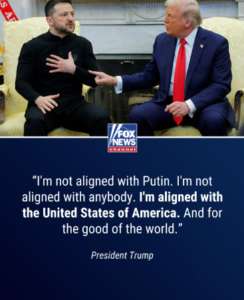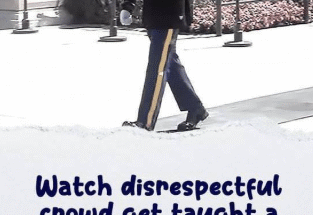On February 28, 2025, a high-stakes meeting unfolded in the Oval Office between U.S. President Donald Trump, Vice President JD Vance, and Ukrainian President Volodymyr Zelenskyy. The discussion, intended to address the ongoing Russo-Ukrainian War and a proposed minerals deal, quickly escalated into a heated confrontation, revealing deep-seated tensions and differing perspectives on the path to peace.
President Zelenskyy sought to secure continued U.S. military support and firm security assurances for Ukraine amidst relentless Russian aggression. He emphasized the critical need for advanced weaponry and unwavering backing to defend Ukraine’s sovereignty. However, President Trump expressed frustration with what he perceived as a lack of appreciation from Zelenskyy, stating, “You don’t have the cards right now. With us, you start having cards.” He further accused Zelenskyy of “gambling with World War III,” suggesting that Ukraine’s approach could escalate global tensions.
Vice President Vance echoed Trump’s sentiments, questioning Zelenskyy’s gratitude for the substantial aid already provided by the United States. At one point, Vance interjected, asking Zelenskyy if he’d “said thank you once this entire meeting.” This remark underscored the administration’s expectation of acknowledgment and reciprocity from Ukraine.
The proposed minerals deal, which aimed to grant the U.S. access to Ukraine’s rare-earth minerals in exchange for economic support, became another point of contention. President Trump described the deal as “very fair,” but Zelenskyy was hesitant to proceed without concrete security guarantees, leading to an impasse.
The meeting’s abrupt and contentious end has significant implications for international relations and the future of U.S. involvement in the Russo-Ukrainian conflict. European leaders have expressed concern over the strained relations, emphasizing the importance of a united front against Russian aggression. Meanwhile, Russian officials have seized upon the discord, with Dmitry Medvedev, Deputy Chairman of Russia’s Security Council, describing the confrontation as “historic,” potentially emboldening Russia’s position in the conflict.
In Ukraine, reactions are mixed. Some citizens admire President Zelenskyy’s steadfastness in defending national interests, while others worry that the deteriorating relationship with the U.S. could lead to reduced support at a critical juncture in the war. The situation underscores the delicate balance Ukraine must navigate in securing international aid while maintaining its sovereignty and strategic objectives.
As the geopolitical landscape continues to evolve, the fallout from this meeting serves as a stark reminder of the complexities inherent in international diplomacy and the far-reaching consequences of strained alliances.

